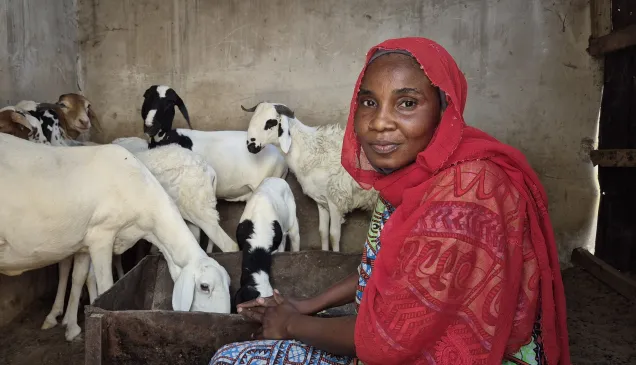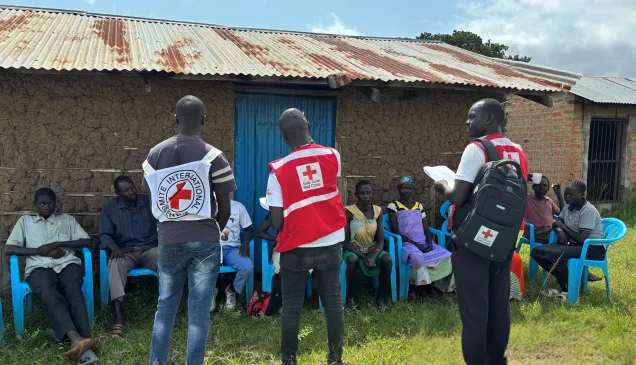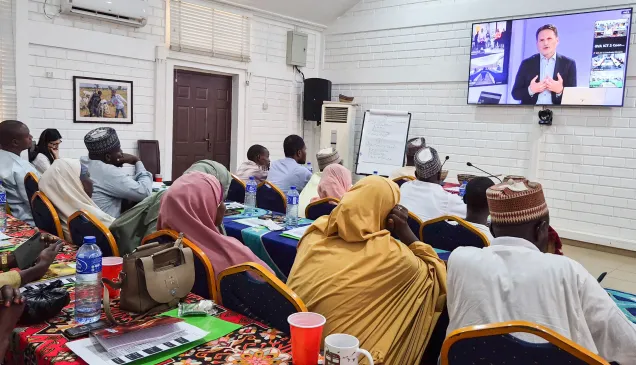Nigeria: Farmers returning from Cameroon sow future, with ICRC seed
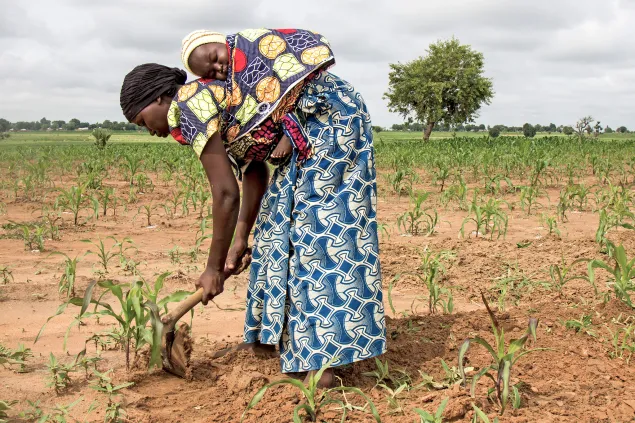
When the residents of Mubi in north-eastern Nigeria fled escalating violence in 2014, they left behind enough food reserves to live on. But with no-one to prevent the cattle from eating the crops during harvesting season, much of that food disappeared. The community was facing severe hunger.
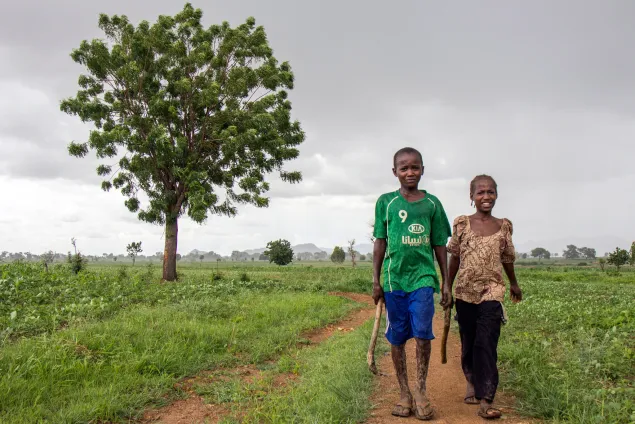
Mubi, Nigeria.
Children were among the more than 40,000 people who fled on foot more than 200 km to neighbouring Cameroon. They and their parents stayed in a refugee camp until the situation was safe enough for them return.
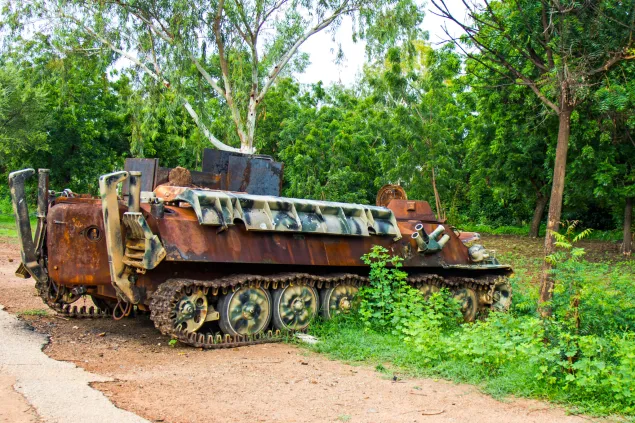
Mubi, Nigeria.
A wide area of northern Nigeria is suffering the effects of fighting between Boko Haram and the Nigerian armed forces. Ardo Benjamin is a community leader in a village near Mubi. Speaking of the day in October 2014 when violence began, he told us: "We heard gunshots around 10 a.m. Most people ran away with no time to take even a Kobo (Nigerian coin) or personal documents."
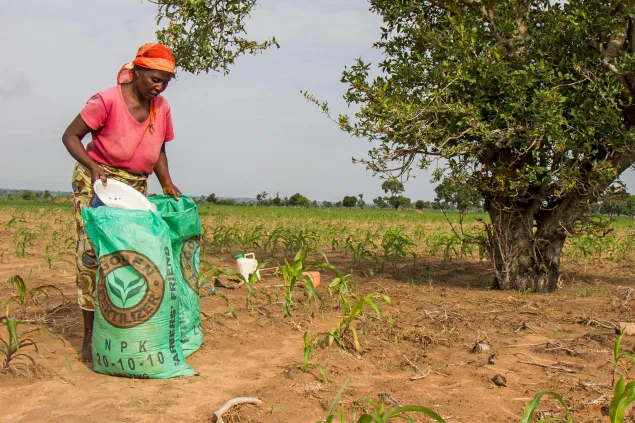
Mubi, Nigeria.
After the situation in Mubi calmed down in December 2014, returnee farmers faced severe difficulties in restarting their livelihoods because they had no income from which they could buy seed or fertilizer. Their depleted food reserves would only have been enough for a few months.
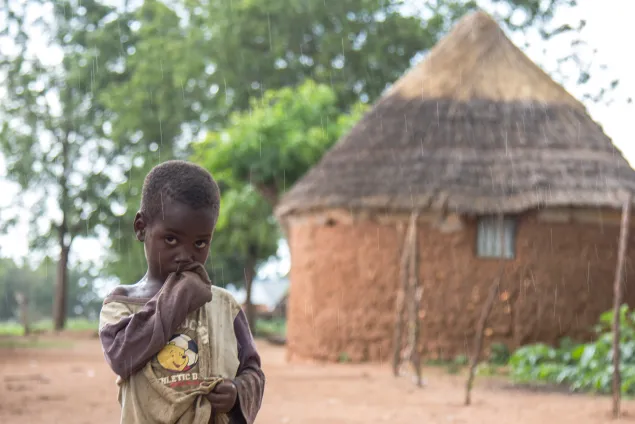
Vimtim, near Mubi, Nigeria.
A child stands in the rain. A shortage of rain could also affect the harvest.
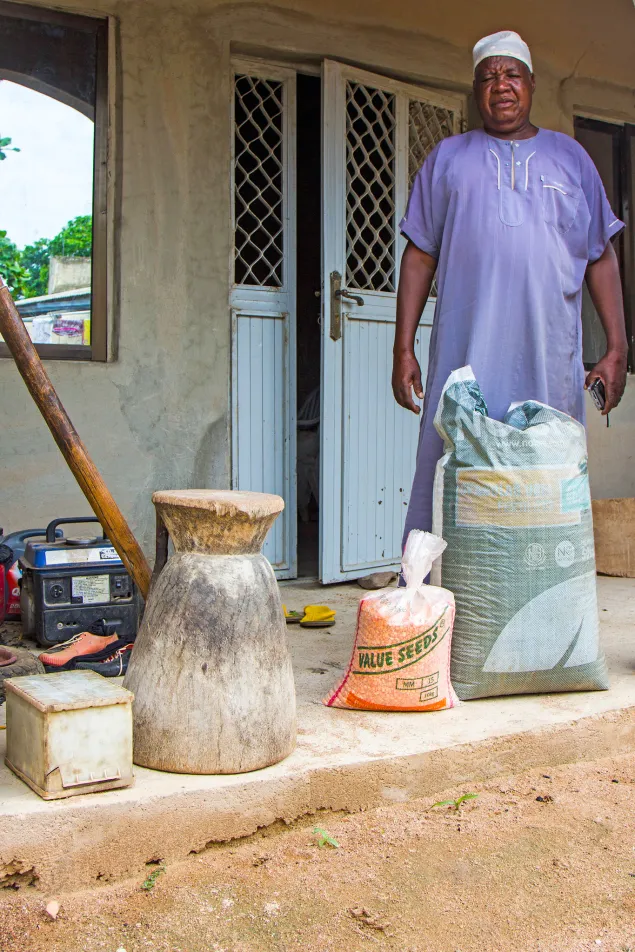
Mubi, Nigeria.
The ICRC has begun helping more than 3,500 farmers, distributing maize seed and fertilizer so they can restart their farms.
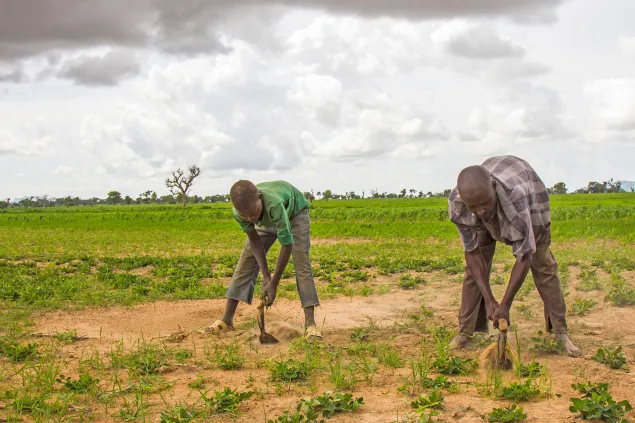
Mubi, Nigeria.
The ICRC has trained farmers in how to improve their yields. Farming families have also received enough food for a month, to ensure that hungry families don’t resort to eating the maize seeds that are meant for planting.
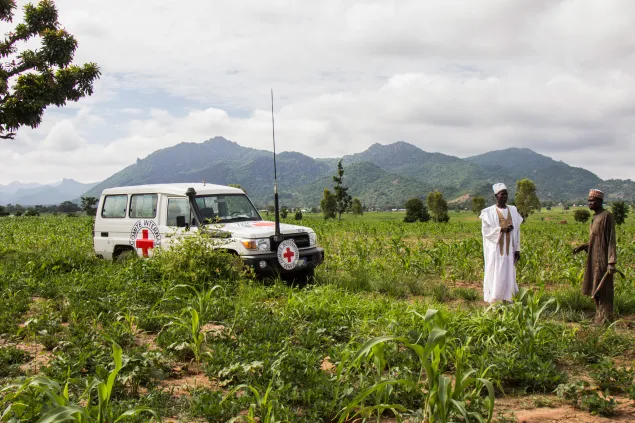
Mubi, Nigeria.
Each household has received 150 kg of fertilizer and 10 kg of maize seed. And the ICRC plans to support more communities across Nigeria.
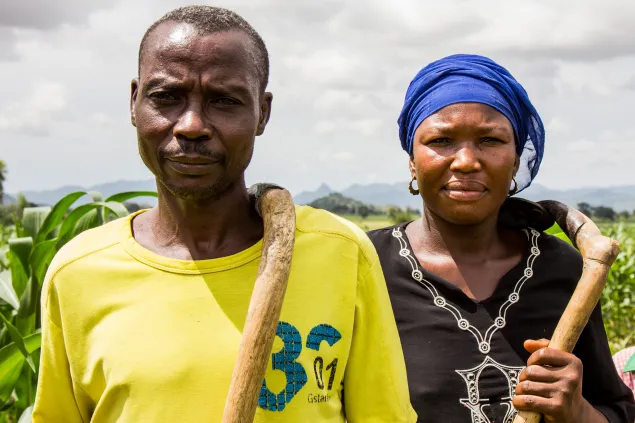
Mubi, Nigeria.
Brother and sister Regina and Michael fled the violence, leaving their farm equipment and cattle behind. Like many others, they trekked 200 kilometres on foot with little food or water. Michael said the aid that has allowed him to restart his farm "arrived at the perfect moment," enabling him to provide food for his family and contributing to his income.
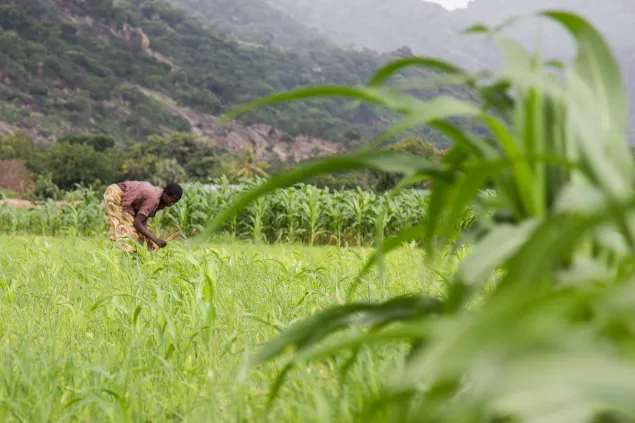
Mubi, Nigeria.
Seed, fertilizer and food will ensure that people have enough to eat during the intensive farming period. "We had never experienced war before," said one farmer. "ICRC assistance helped us get back on our feet."
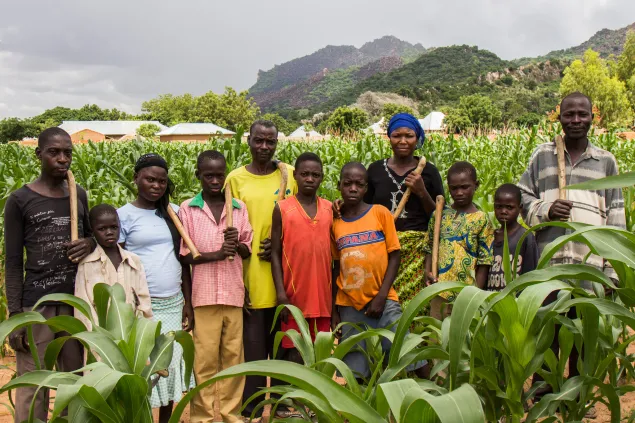
Mubi, Nigeria.
More than 40,000 people, most of them farmers, fled the Mubi area for Cameroon because of the fighting. Now, whole families are working on the farms to replace crops devoured by farm animals left unattended during the violence.
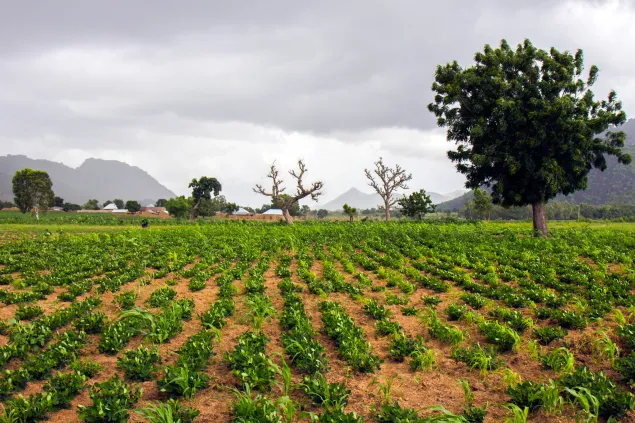
Mubi, Nigeria.
Maize begins to appear in the fields. The ICRC has supplied seed and fertilizer for returnee farmers affected by conflict in north-eastern Nigeria.
A wide area of northern Nigeria is suffering the effects of fighting between Boko Haram and Nigerian armed forces. More than 40,000 people fled to neighbouring Cameroon. By the time they returned, crops and food stocks had been raided. The ICRC responded by distributing seed and fertilizer to more than 3,500 returning farmers, so they could restart their lives.

